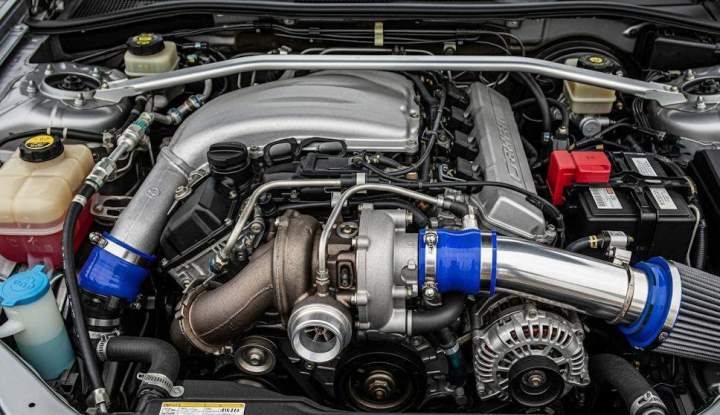How Turbo Chargers Improve Engine Performance and Efficiency
Turbo Chargers Admin / August 13, 2025

Understanding the Basics of Turbochargers
What is a Turbocharger?
A turbocharger is a forced induction device that compresses air entering the engine, allowing for a greater volume of air and fuel to be burned. By increasing the air density, a turbocharger enables the engine to produce more power without significantly increasing its size or weight. This is achieved by utilizing exhaust gases that would otherwise be wasted, making the process more efficient.
How Turbochargers Work
Turbochargers consist of two main components: the turbine and the compressor. The turbine extracts energy from the exhaust gases, which then drives the compressor. As the compressor spins, it draws in ambient air and compresses it before sending it to the engine's intake manifold. This cycle allows for a more significant amount of air to enter the combustion chamber, enhancing the overall power output of the engine.
Performance Enhancement
Increased Power Output
One of the most notable advantages of turbochargers is the substantial increase in horsepower. By allowing for more air and fuel to enter the engine, turbochargers can significantly elevate power output without necessitating a larger engine. This is particularly beneficial for manufacturers aiming to create high-performance vehicles that remain lightweight and compact.
Better Engine Response
Turbochargers improve engine responsiveness by reducing lag, which is the delay between pressing the accelerator and the engine's response. Advanced turbocharging technology, such as twin-scroll turbos or variable geometry turbines, can provide quicker spool times, ensuring that drivers experience a more immediate power delivery. This enhanced responsiveness contributes to a more dynamic driving experience.
Fuel Efficiency
Enhanced Fuel Economy
Turbocharging can lead to improved fuel economy, as it allows smaller engines to produce power levels comparable to larger, naturally aspirated engines. With a turbocharged engine, manufacturers can tune the vehicle for optimal efficiency, reducing overall fuel consumption while maintaining performance. This aspect is particularly valuable for consumers looking to save on fuel costs and minimize their carbon footprint.
Optimal Combustion
Turbochargers facilitate more efficient combustion through better air-fuel mixing. The increased air density allows for a more complete burn of the fuel, reducing unburned hydrocarbons and other emissions. This not only enhances performance but also aligns with stringent environmental regulations, making turbocharged engines a more eco-friendly option.
Technological Innovations
Variable Geometry Turbochargers
Modern turbocharging technology has seen innovations like variable geometry turbochargers (VGTs), which adjust the angle of the turbine blades to optimize airflow at various engine speeds. This versatility enhances efficiency and performance across different driving conditions, making VGTs an attractive option for manufacturers.
Electric Turbochargers
The introduction of electric turbochargers represents a significant leap forward in turbocharging technology. By using an electric motor to spool the turbo, these systems can eliminate turbo lag entirely, providing instant power delivery. Electric turbochargers are often coupled with hybrid systems, further improving fuel efficiency and performance.
Challenges and Considerations
Heat Management
One of the primary challenges associated with turbochargers is managing the heat generated during operation. As turbochargers compress air, they can produce significant heat, which can affect performance and longevity. Effective cooling systems, such as intercoolers, are essential to mitigate these issues and maintain optimal performance.
Maintenance and Reliability
While turbochargers can enhance engine performance, they require careful maintenance to ensure reliability. Regular oil changes and inspections are crucial, as turbochargers rely on engine oil for lubrication. Neglecting maintenance can lead to premature wear or failure, impacting overall engine performance.
A high-performing turbocharger can transform your driving experience. A Parts Supplier can provide quality components to keep your engine running efficiently.